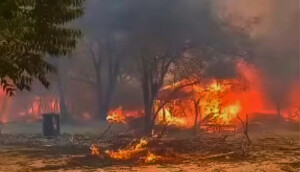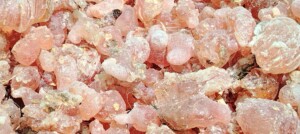Clashes displace over 41,000 people in Darfur: UN
Humanitarian aid organisations are largely denied access to East Jebel Marra, where the most displacement and fighting takes place, according to OCHA.
Some 41,000 people have been forced to flee conflict in Darfur so far this year, according to the United Nations Office for Coordination of Humanitarian Affairs (OCHA). It warned that needs for the displaced are significantly higher because relief agencies are largely denied access to East Jebel Marra, where some of the heaviest fighting between government forces, militiamen, and armed rebels takes place. The access denial has also made exact verification of the numbers of refugees impossible.
“To date, aid organisations have assessed and verified the needs of 41,304 people displaced as a result of this conflict,” OCHA reported in its weekly humanitarian update on Sudan. The humanitarian office adjusted the number from the 38,600 newly displaced people aid organisations registered last week.
Um Baru
As of 12 February, the International Organization for Migration has registered an estimated 7,500 displaced people who have taken refuge near the UN-African Union Mission in Darfur (Unamid) team site in Um Baru locality, in the western part of North Darfur. The refugees are mainly women and children. The displaced and the locality commissioner have been discussing a possible allocation from the congested safe zone to a more spacious area in Um Baru.
The UN World Food Programme (WFP), children’s fund (Unicef), refugee agency (UNHCR), and other humanitarian partners provide food, water, sanitation supplies and emergency household kits to displaced people in Um Baru and northern El Fasher. Médecins Sans Frontières-Spain (MSF-E) is awaiting road clearance to deliver 600 emergency household supply kits.
El Fasher rural
Humanitarian organisations have verified an estimated 12,000 displaced people in Behair, Majdob, Shagara A,B,C, and Um Hagaleeg in rural El Fasher. International humanitarian actors have distributed emergency household supplies to people in the Shagara villages.
Insecurity in East Jebel Marra worsens further because militia members continue to plunder villages and steal large numbers of livestock. A witness in Um Baru said last week that pro-government militiamen expropriated the areas north of Kutum and in Um Baru and Karnoi localities. “They move in vehicles mounted with automatic weapons, and then divide themselves into two groups. The first group heads directly to the villages to steal the money and properties of the residents. The second group moves to the pasture and steal the livestock in lorries, while they are guarded by gunmen in Land Cruisers," he described their "tactic".











 and then
and then